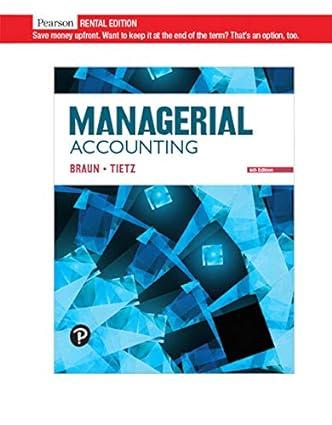For years, it has been cheaper to manufacture many products overseas (China and other countries) than in
Question:
For years, it has been cheaper to manufacture many products overseas (China and other countries) than in the United States. Labor is still less expensive overseas than in the United States, but the cost difference has been decreasing. In addition, the supply chain shortcomings that became evident during the COVID-19 pandemic have put pressure on U.S. companies to manufacture products and their components in the United States.
Stanley Black & Decker has moved production of its Craftsman wrenches, ratchets, and more back to the United States from China. About 500 people are employed at the new facility in Fort Worth, Texas, and robots will help boost output.
Apple has committed \($430\) billion to fund U.S. manufacturing and research for its products and components. Toyota has announced that it plans to build a \($1.3\) billion battery plant in North Carolina. Samsung has also announced that it will build a \($17\) billion semiconductor plant in Texas.
For these companies, it is likely that the capital budgeting proposals for the U.S.
manufacturing sites did not meet the companies’ standard capital budgeting criteria. Yet the companies are still opting to manufacture some products in the United States, where it is, for the time being, more expensive than other locations.
Requirements:
1. What qualitative factors would likely have been considered when Stanley Black & Decker, Apple, Toyota, and Samsung made their decisions to invest in U.S. manufacturing facilities? In other words, why would Stanley Black & Decker, Apple, Toyota, and Samsung decide to manufacture products in the United States when all of these companies have well-established facilities and supply chains in China?
2. What challenges will these companies likely face in manufacturing products in U.S. plants?
3. What stakeholders are impacted, either positively or negatively, by the decision to manufacture in the United States? How are these stakeholders impacted?
4. What ethical issues potentially arise from not producing in the lowest cost location?
Step by Step Answer:






